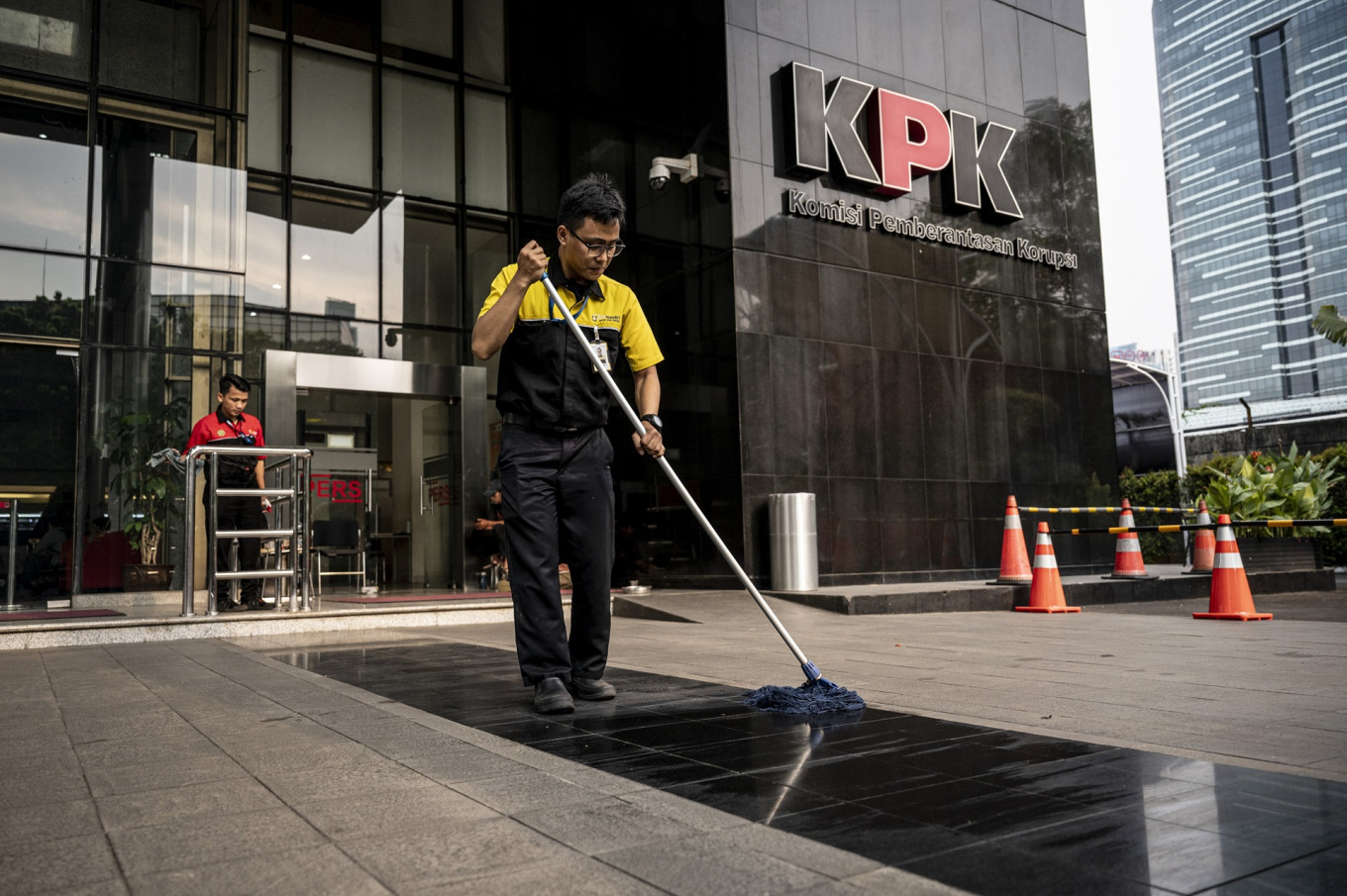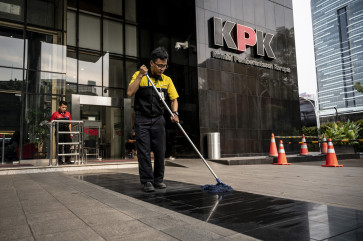Popular Reads
Top Results
Can't find what you're looking for?
View all search resultsPopular Reads
Top Results
Can't find what you're looking for?
View all search resultsIndonesia’s anticorruption requires a decisive shift in focus
About 76 percent of respondents identified bribery, kickbacks, asking for commissions, illegal levies and unofficial fees as the most common corrupt acts they encountered in real life.
Change text size
Gift Premium Articles
to Anyone
I
n his inaugural speech last month, President Prabowo Subianto pledged to intensify efforts to combat the country’s entrenched corruption and enhance its global competitiveness. Indonesia’s Corruption Perception Index (CPI) over the past decade remains unchanged from its position in 2014, indicating limited progress.
Despite 25 years of reform, corruption persists at similar levels, reflecting the shortcomings of the strategy implemented by both the Reform Era and Soeharto’s regimes. Can Indonesia avoid the same pitfalls over the next 25 years?
There are misinterpretations and misconceptions. The root of the problem lies in how corruption is defined and perceived. Many Indonesians, including state auditors and law enforcement, interpret corruption under Law No. 31/1999 on corruption, as amended by Law No. 20/2001, as actions primarily harming state finances.
This narrow definition often excludes the broader spectrum of corrupt behavior, such as bribery, abuse of authority or other illicit gains, which may not directly affect state finances.
However, these laws actually define 30 specific corruption offenses across seven categories, with bribery being the most frequent offense. Yet, public and institutional focus largely overlooks bribery, conflating corruption solely with financial losses to the state.
There is a gap between the common corruption and law enforcement focuses. Questionnaire-based surveys were conducted between 2015 and early 2024, with over 7,500 respondents. The main conclusion is that about 76 percent of respondents identified bribery, kickbacks, asking for commissions, illegal levies and unofficial fees as the most common corrupt acts they encountered in real life.
Around 17 percent stated that financial loss to the state and benefiting themselves/others was the most common corrupt act. The remaining 7 percent identified other types of corruption. To date, no other comparable surveys have reached a different conclusion.



















